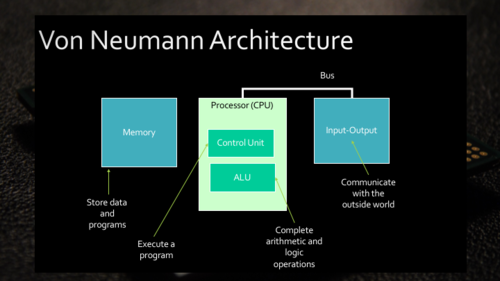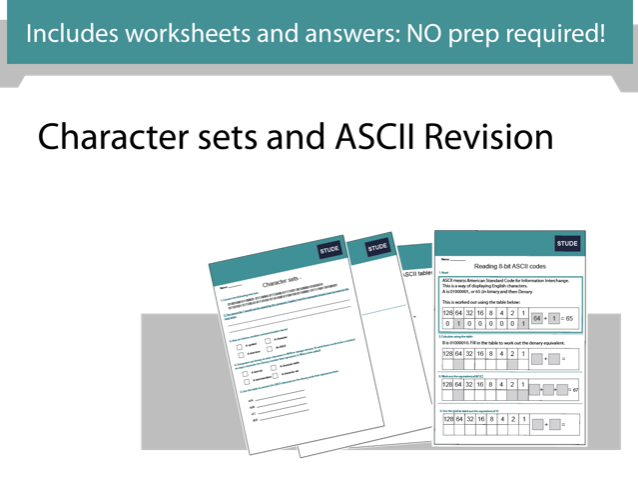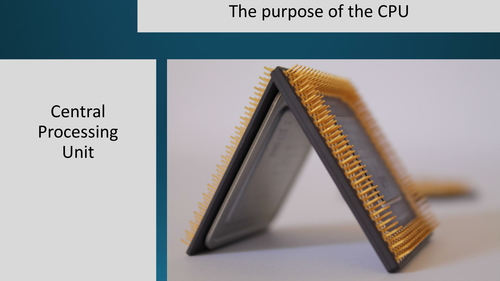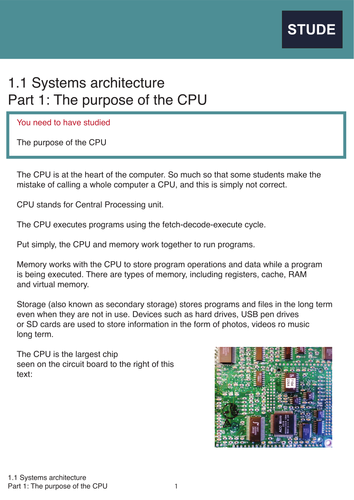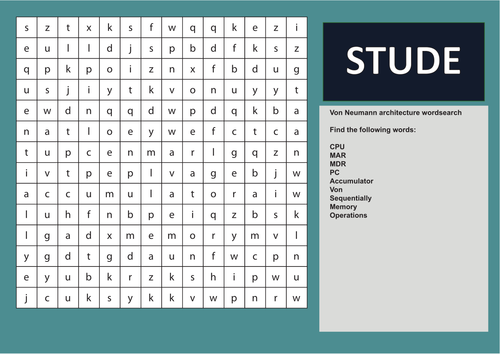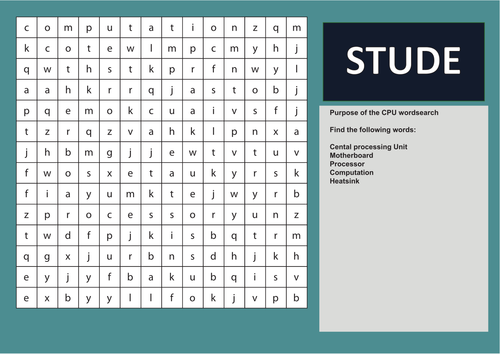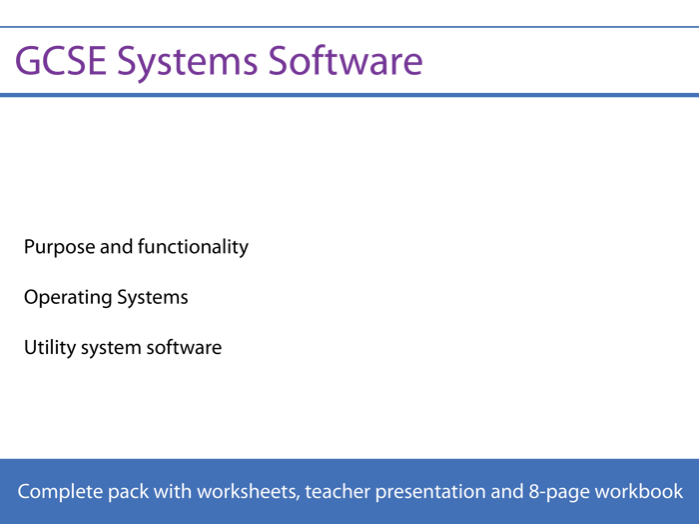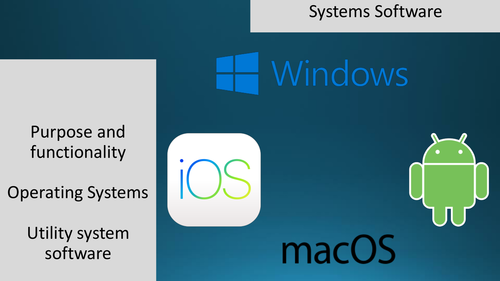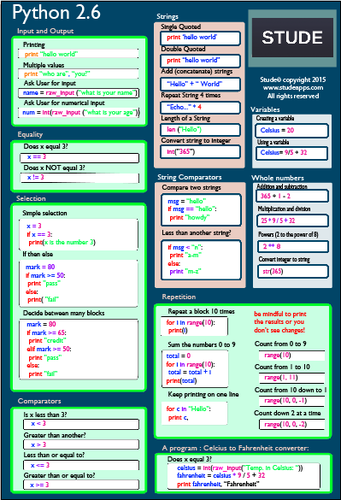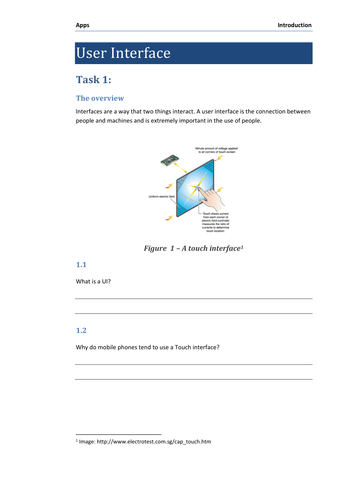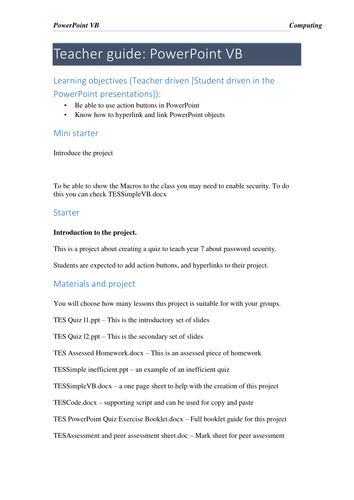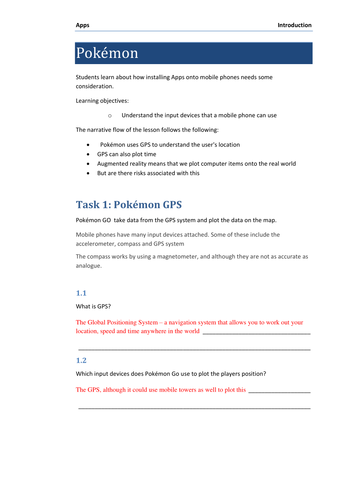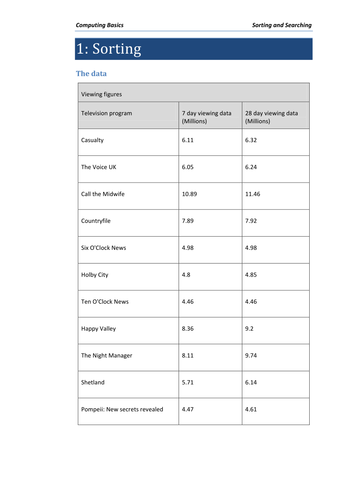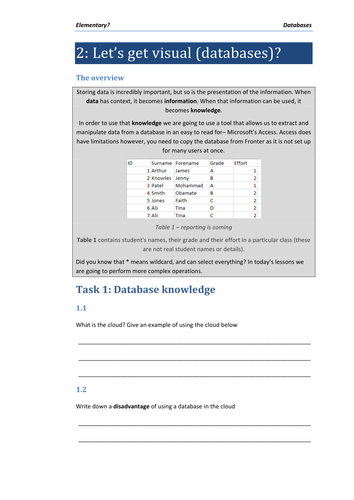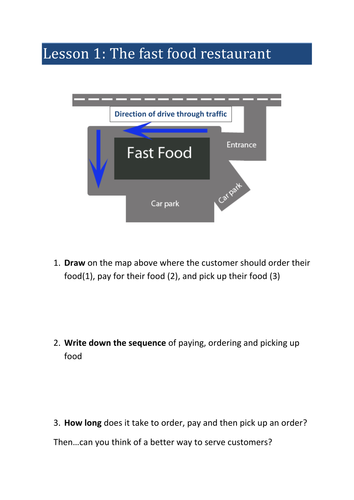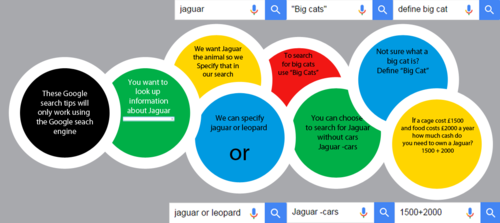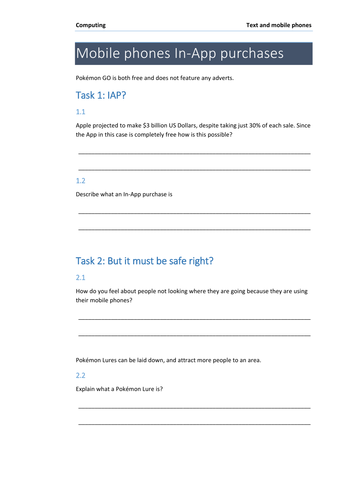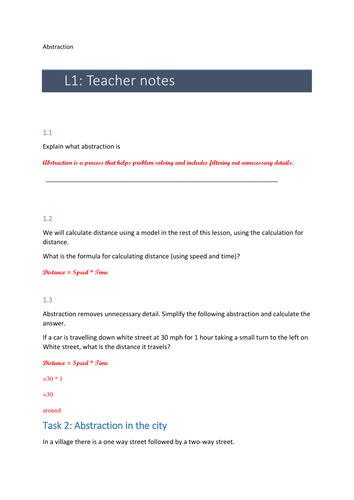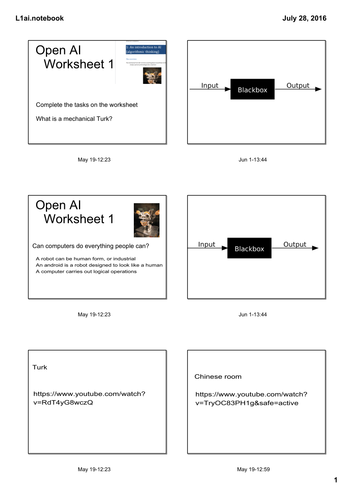
546Uploads
228k+Views
80k+Downloads
Computing

Von Neumann
Lesson presentation for the Vonn Neumann architecture. Designed for OCR Computer Science (9-1) J276 but is more than useful for Computer Science students studying AQA and other exam boards.
Contains the PowerPoint presentation (complete with diagrams)
Contains everything the students need to know:
Basics of the Von Neumann architecture.
MAR (Memory Address Register)
MDR (Memory Data Register)
Program Counter
Accumulator

GCSE Computer Science 9-1 – Character sets and ASCII Revision
For the AQA GCSE 9-1 Specification, and also suitable for OCR J276.
Contains a series of tasks for revision around ASCII and character sets for students to use in preparation for their exams.

The purpose of the CPU Lesson GCSE Computer Science for OCR
Complete lesson for the purpose of the CPU. Designed for OCR Computer Science (9-1) J276 but is more than useful for Computer Science students studying AQA and other exam boards.
Contains a PowerPoint presentation, and three basic worksheets.
Contains everything the students need to know:

The Purpose of the CPU Revision Pack for OCR Computer Science
Revision pack for the purpose of a CPU. Designed for OCR Computer Science (9-1) J276 but is more than useful for Computer Science students studying AQA and other exam boards.
Contains a revision booklet for the students, and a questioning activity

The purpose of the CPU Wordsearch GCSE Computer Science for OCR
Purpose of a CPU wordsearch for GCSE computer science

Systems Software Lesson for AQA Computer Science
Designed for AQA Computer Science (9-1) 8520 but is more than useful for other Computer Science students.
Contains a PowerPoint presentation, and three worksheets to help you deliver the content in the specification.
Specification reference 3.4.3: Software classification
Understand the need for, and functions of, operating systems (OS) and utility programs.
Understand that the OS handles management of the:
• processor(s)
• memory
• I/O devices
• applications
• security

4.4 Software for Pearson Edexcel GCSE in Computer Science
Designed for Pearson Edexcel Level 1/Level 2 GCSE (9-1) in Computer Science (1CP1)
Covers 4.4.1 and 4.4.2

Python Cheat sheets Basic + Advanced (2.6 and 3.4)
Basic Python poster cheat sheets.
Designed for version 2.6 and 3.4.
Also contains a Python data types poster.
Python basics (2.6 and 3.4.2)
Python advanced (2.6 and 3.4.2)
Python data types

User Interfaces for Computing (KS3 or KS4)
A session to teach students about user interfaces. Suitable for KS3 or KS4, and has an activity where they think about the features of a UI that will be suitable for a children's tablet.

Visual Basic (VB) using PowerPoint for KS3 Computing
A project for Microsoft PowerPoint that teaches Visual Basic by allowing students to create an interactive quiz.
A great hit with students and teachers alike!
Full project including assessed homework, assessment sheet and full guide.

Pokémon GO Mobile input devices Computing lesson for KS3
Students learn about how installing Apps onto mobile phones needs some consideration.
Learning objectives:
o Understand the input devices that a mobile phone can use
The narrative flow of the lesson follows the following:
• Pokémon uses GPS to understand the user's location
• GPS can also plot time
• Augmented reality means that we plot computer items onto the real world
• But are there risks associated with this

Algorithms sorting and searching (inc. Bubble sort) for KS3 and KS4
Worksheet is used for comparing algorithms.
This is a very good introduction featuring links to online resources, and is a great way for the students to be active while learning this important set of concepts.

Databases full Scheme of work for KS3
Lessons plus video support.
Simply the best way to teach students relational databases.

micro:bit sequencing lesson
Full lesson about sequencing for microbits. Aimed at year 7, where they code a namebadge and a scissors paper stone game.
The coding tasks have pre prepared videos on Youtube for you to share and use, as well as a tutorial guide.
This uses the blocks mode and the emulator, no need to use the actual hardware.

Google skills for KS3
Two lessons for KS3 around improving Google skills.
Can be used as cover lessons, or to help you expand student's knowledge of the world's most popular search engine.

AppInventor Computing Programming Scheme of work for KS3
Full scheme of work including video tutorials for each section.
5 lessons including Assessment sheet. This resource has 23 separate files, all the preparation is done so pretty much all you have to do is check it over and go!
Includes all resources and potential exam questions that can be set for homework or for a test.

Pokémon GO eSafety lesson for KS3
Lesson around Pokémon GO that talks about the eSafety issues that need to be addressed. This includes paying money in seemingly free to play games, the consequences of thinking other players are safe and how lures work within the game.

Abstraction Computing Lesson for KS3
Two different ways of teaching abstraction to a Key Stage 3 audience.
One way is by using logos and Photoshop (Abstraction and Logo Design).
The other included way is by creating a model in Microsoft Excel (Abstractionmodel).
Both very successful lessons to explain this important concept.

Artificial Intelligence Computer Science Scheme of work for KS3
Covers Ai for Key Stage Three.
Lesson 1 - What are the limits of computing?
Lesson 2 - Why do we need humans to do work (how Captcha works)
Lesson 3 - Plagiarism and your own work
Complete with worksheets, presentations and answer sheets.

